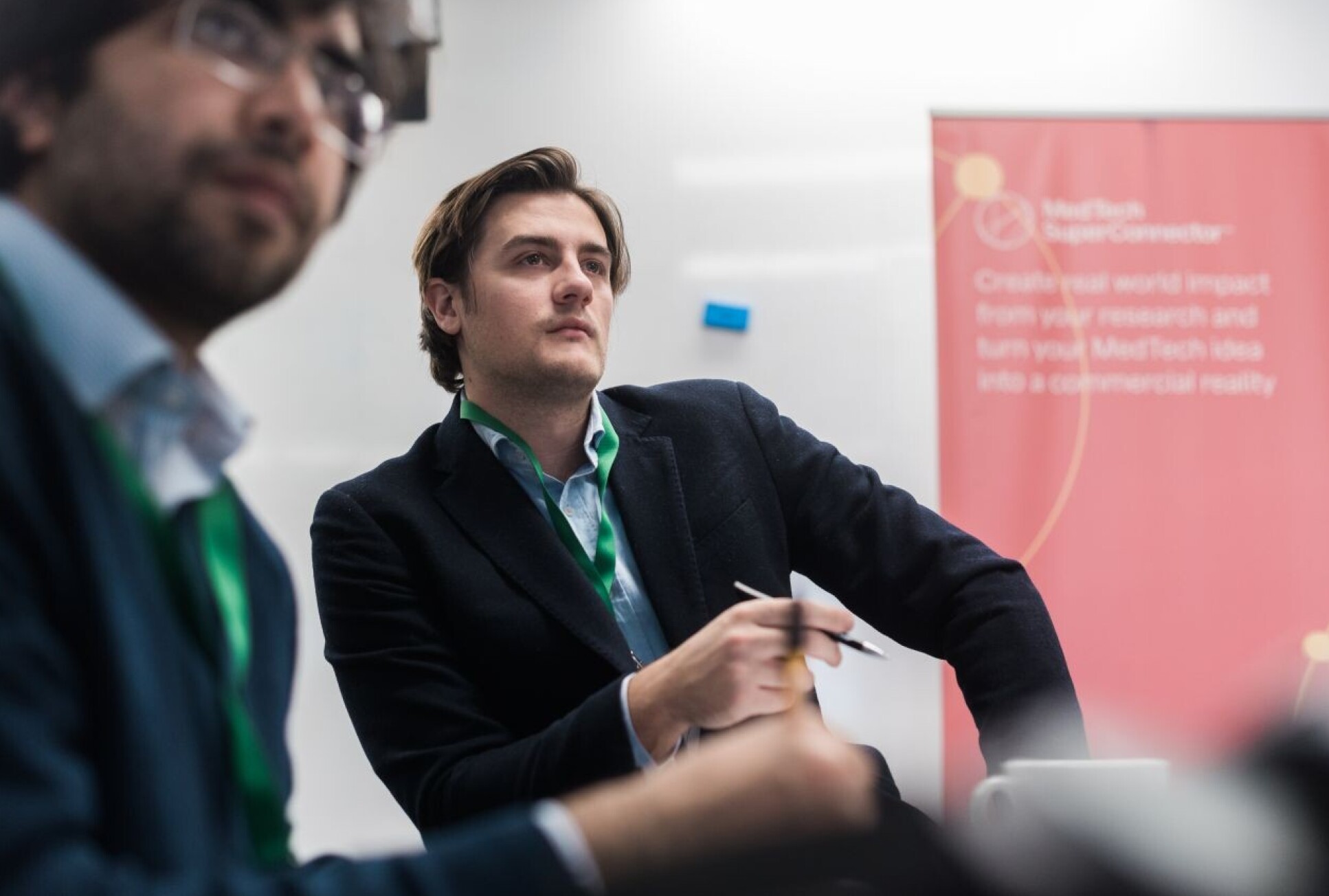
Imperial Launches New AI Startup Accelerator, Accepting Applications
The AI SuperConnector will support early career researchers with entrepreneurial ambition from Imperial, York, Leeds and Liverpool universities.
The AI SuperConnector, a new accelerator initiative led by Imperial, has opened for applications. The goal is to help early career researchers launch high-potential startups using artificial intelligence (AI) to solve real-world problems.
“Bringing together leading experts from industry and academia, the AI SuperConnector curriculum combines entrepreneurship fundamentals with AI capabilities to equip participants with the skills, knowledge, and connections they need to develop robust, ethical, and impactful AI ventures,” says Hiten Thakrar, who heads the initiative.

The AI SuperConnector is open to early career researchers from the four partner institutions involved in the initiative: Imperial College London, the University of York, the University of Leeds and the University of Liverpool. Applications to join the first cohort are invited by 9 June.
“The AI SuperConnector will transform today’s researchers at the forefront of AI discovery into tomorrow’s startup and scale-up leaders,” said Dr Simon Hepworth, Director of Imperial Enterprise. “These researchers will already be experts in state-of-the-art AI and its application to societal challenges, but thanks to the AI SuperConnector they will become conversant in commercialisation and comfortable in ecosystems that span multiple business sectors.”
Accelerated research to market opportunity
Successful applicants will go through a six-month acceleration programme that challenges them to address both the technology they have developed and the market for their innovations. It combines the fundamentals of entrepreneurship, such as business planning, financing, marketing, and management with foundational knowledge of AI and its applications.
If you’re a research fellow, postdoc, or late-stage PhD candidate with an AI technology at a proof-of-concept stage or beyond, we’re looking for you!Hiten ThakrarAI SuperConnector
Along the way, the AI SuperConnector will connect participants with experienced entrepreneurs, investors and AI experts. In particular, they will get the chance to learn from AI startups from all the partner universities, demonstrating how AI can be applied successfully in a business context.
Each team will also have access to £20,000 in non-dilutive funding, which they can use to fund everything from prototyping to initial market validation.
“If you’re a research fellow, postdoc, or late-stage PhD candidate with an AI technology at a proof-of-concept stage or beyond, we’re looking for you!” says Mr Thakrar.
Approximately 10 successful applicants will be accepted into the first cohort, which will begin work in mid-July.
A proven model of acceleration
The AI SuperConnector builds on Imperial’s experience running the MedTech SuperConnector (MTSC), a collaborative medical technology accelerator set up in 2018. Over seven cohorts, the MTSC expanding the horizons of over 95 early career researchers and produced 14 startups. In the first five years, these new companies raised over £19 million in venture capital and grant funding, and created more than 30 jobs.
“By combining Imperial’s track record of bringing ideas to market with tailored AI venture building capabilities, the AI SuperConnector aims to replicate the MTSC’s success, empowering founders to develop robust, ethical AI innovations that drive economic and social progress,” says Mr Thakrar, who also leads the MTSC.

An important distinction is that the AI SuperConnector will support startups in any sector, not just healthcare and medical technology. Each university involved in the AI SuperConnector will lead in a sector reflecting its existing strengths, including defence and security, health, sustainability and climate change, and robotics and autonomous systems.
The AI SuperConnector is funded by the Research England Connecting Capability Fund, with a budget of £1.5 million for two cohorts. The second cohort is expected to open for applications in the second half of 2024.
